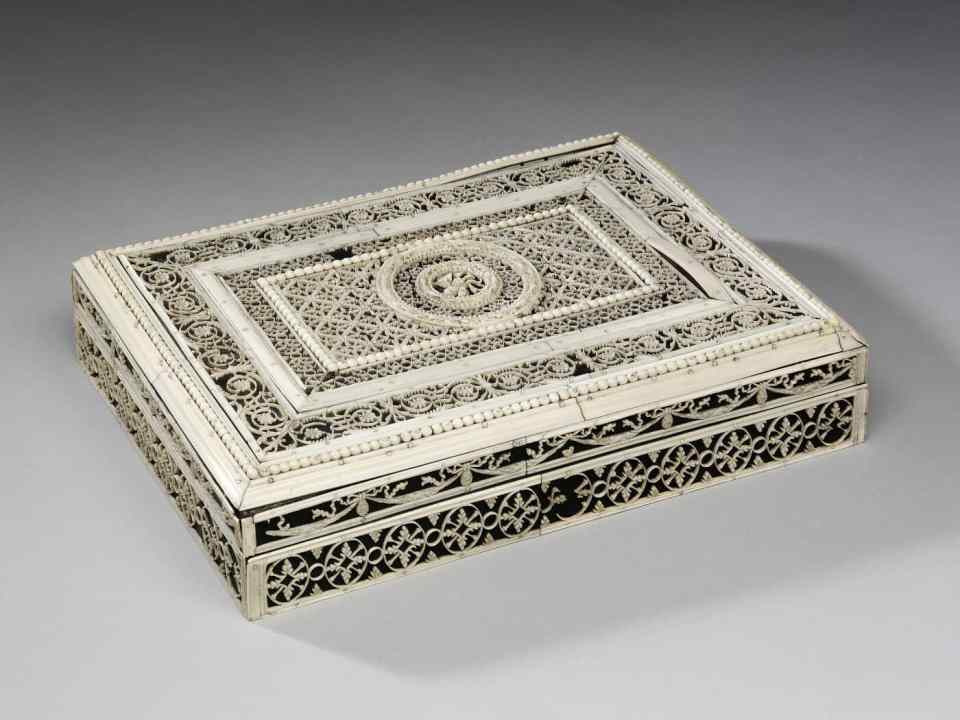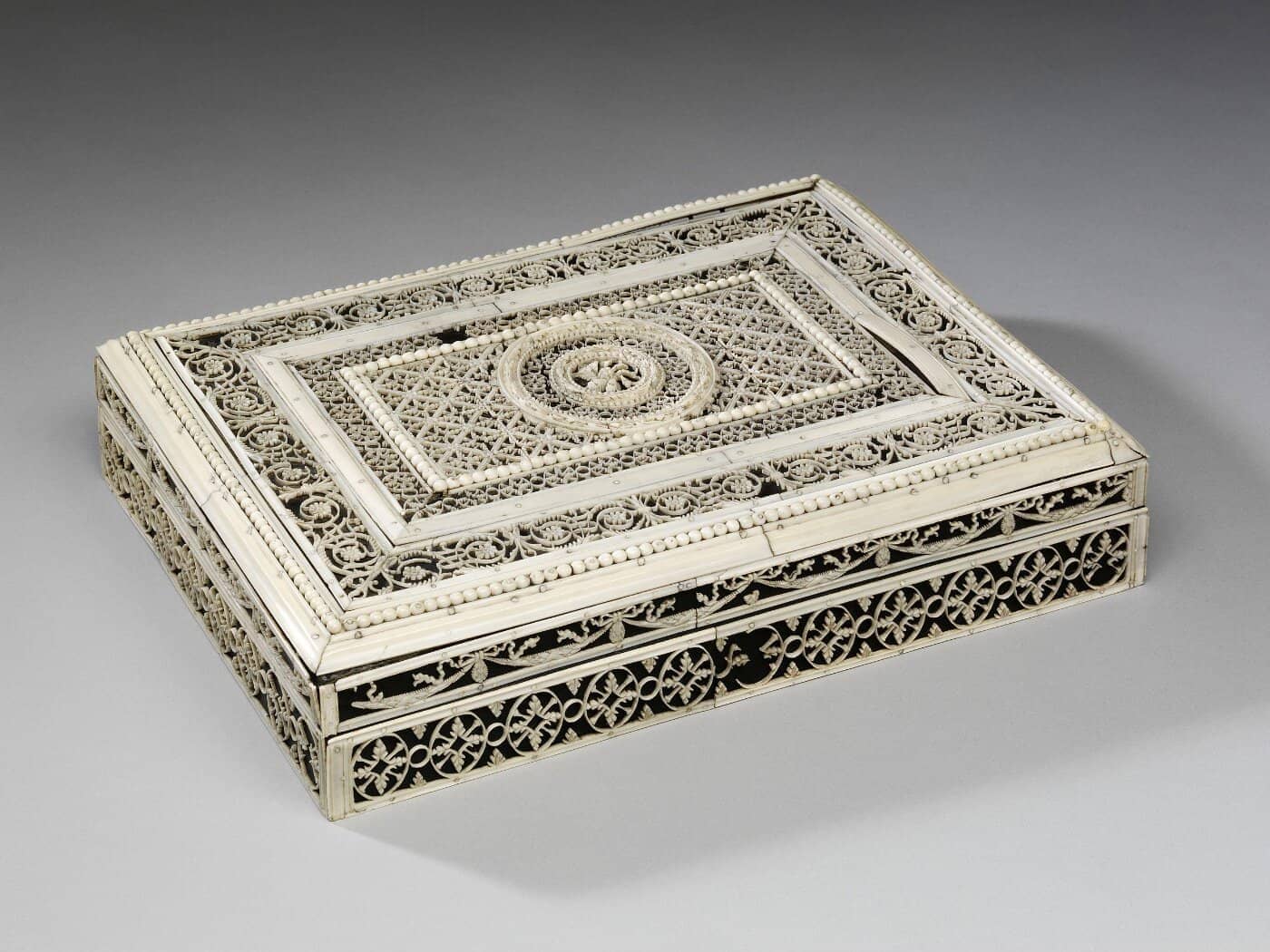The world’s most draconian ban on the trade in ivory came into force in the UK this month. It does not increase the legal protections already enjoyed by all living elephants, but rather extends these protections to elephants that have been dead for decades.
Trade in ivory and most ivory products from elephants killed after 1947 was already illegal; now all trade in ivory except that covered by five narrow exemptions is banned and subject to a maximum penalty of a £250,000 fine or five years’ imprisonment – even if the tusks were last attached to a living elephant centuries ago. The supporters of the ban argue that it stops rogue dealers passing off more recent ivory as antique items – but such behaviour already was illegal and subject to substantial criminal sanction.
England has had a long association with ivory; it was a renowned centre for ivory carving in the Middle Ages. Some of the British Museum’s ivory pieces date to the 12th century; the houses of the Victorian and Edward British middle classes were rammed with ivory in the shape of everything from hairbrushes, combs and vanity boxes via Japanese netsuke and Oriental carvings to billiard balls, hunting trophies and pianos. Whilst pianos will certainly be exempt from the ban and mediaeval carvings – unless they are distinctly lacklustre iterations – will almost certainly be, selling what were once ubiquitous artefacts furnishing bourgeois homes is now a crime with potential penalties not dissimilar to those for trading Class B drugs. The difference is that there is plenty of support for decriminalising cannabis. The same cannot be said for countenancing an overturn of the ivory ban. The most banal and bourgeois ivory trinket is now more subversive than the herbal stimulants whose unpoliced stench has become one of central London’s most ubiquitous smells.
Trading in objects made from the tusks of long dead animals that will never be revived is a harmless activity
The new ban was legislated for in 2018 in the wake of the previous year’s general election. During that election, it became a Corbynista campaigning point and another thing to pillory Theresa May for that the Conservatives hadn’t reaffirmed a previous commitment to banning ivory. To make amends, the Tories then passed the toughest ban possible. The fact that it has taken four years to implement the legislation shows that the measure is not as straightforward as its cheerleaders like to suggest.
Objects containing ivory that can still be bought and sold are narrowly defined: pre-1975 musical instruments containing less than 20 per cent ivory (basically pianos); pre-1947 items containing less than 10 per cent ivory (for example, a silver teapot with an ivory knob or pre-1947 inlaid furniture); pre-1918 portrait miniatures, an artform where England was preeminent and which were ubiquitously painted on ivory; purchases by approved museums; and pre-1918 material of ‘outstandingly high artistic, cultural or historical value’ as assessed by an expert committee.
To lawfully sell anything under these exemptions, the item must be registered. This is fairly straightforward for the first four categories but a much more complex process for the pre-1918 objects of outstandingly high artistic, cultural or historical value. It is too early to say how the committee assessing these applications will apply the rule – but ‘outstanding’ is a high bar. Early English carvings will certainly be safe, as very likely will the most accomplished netsuke such as those eulogised by arthouse potter Edmund de Waal in his bestselling family history The Hare with Amber Eyes. It will be interesting to see how much else will pass muster – clearly the vast majority of the ivory accoutrements which our nineteenth and indeed twentieth century forebears treasured is now beyond the pale. Furthermore, any solid ivory carving – however important it may be artistically or historically – made after 1918 will be banned.
The appetite for buying these trinkets clearly does still exist. In recent months the UK’s second and third tier auction houses such as Roseberys in Norwood in south London, have been flooded with ivory items presumably from vendors preempting the ban. Most are oriental knick knacks but also Edwardian opera glasses, thermometers, auctioneers’ gavels and similar accretions. The vast majority of these objects have found willing buyers – even though these buyers must have been aware that the monetary value of their newly acquired flotsam would wholly evaporate shortly after purchase, as they could not be sold again. If the buyers were intending to take them abroad to sell them there, they will have had to have done so before the ban came into force on 6 June as it additionally outlaws the export of ivory with the intention of selling it.
Trading in objects made from the tusks of long dead animals that will never be revived is a harmless activity; no moral opprobrium should be attached to it. The new measures seem to imply that ivory only becomes untainted when it is important art, but not when it is everyday bric-a-brac. My ten-year-old son starts his weekdays by using a mid-twentieth century ivory shoe horn, now snapped in various places through his not so gentle ministrations, to put on his regulation footwear. Is there really anything wrong with me providing him with this admittedly wholly unnecessary equipment? I firmly don’t believe that elephants should be killed now to produce such items, but I can’t see how intentionally destroying these items produced by earlier generations, as some suggest we should, does any good. An elephant of an earlier generation should probably not have sacrificed its life in the service of making shoe horns and assorted trivia – but destroying these items now will not undo that sacrifice.
Anyone who has entered the ivory emporiums of Hong Kong, usually not far from the shops selling dried sharks’ fin and other sinful objects, will realise that there clearly is plenty of illicit contemporary ivory about and that it is being used to produce – at least to western tastes – truly hideous carvings of Buddhas, Chinese emperors and prancing horses of zero artistic value. But it was already illegal to sell this kind of stuff in the UK, notwithstanding the fact that few would want to own it.
In an attempt to shore up support for Boris Johnson among the Tory backbenches, the government seems thankfully to have abandoned its plans to ban the fur trade, foie gras and the importation of hunting trophies. There was no mention of these plans in this year’s Queen’s Speech. Is it too much to hope that the ivory ban will be the last virtue signalling measure in the name of animal rights by this Conservative government?







Comments